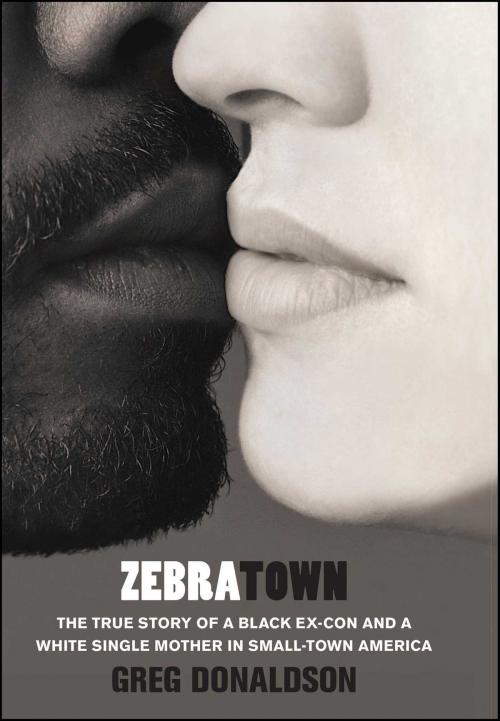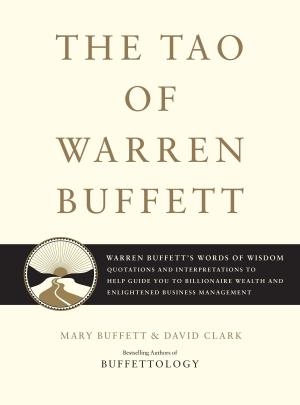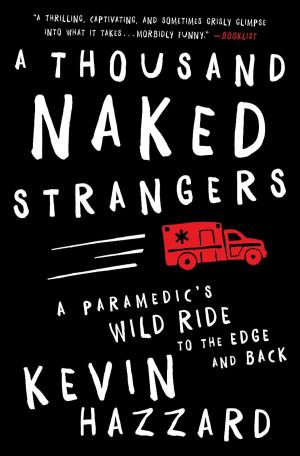Zebratown
The True Story of a Black Ex-Con and a White Single Mother in Small-Town America
Nonfiction, Social & Cultural Studies, Social Science, Sociology, Urban, Health & Well Being, Psychology, Social Psychology, Crimes & Criminals, Criminology| Author: | Greg Donaldson | ISBN: | 9781439159071 |
| Publisher: | Scribner | Publication: | August 24, 2010 |
| Imprint: | Scribner | Language: | English |
| Author: | Greg Donaldson |
| ISBN: | 9781439159071 |
| Publisher: | Scribner |
| Publication: | August 24, 2010 |
| Imprint: | Scribner |
| Language: | English |
Eight years in the making, this edgy, in-depth account follows a black felon’s attempt to find a new life for himself with a white woman in a small-town neighborhood where—as the book’s title implies—such relationships are common. A remarkably intense read, Zebratown reveals a rhythm of life spiked with violence, betrayal, sex, and the emotional dangers created by passionate love.
Greg Donaldson’s Zebratown follows the life of Kevin Davis, an ex-con from Brownsville, Brooklyn, who, after his release from prison, moves to Elmira, New York, and takes up with Karen, a young woman with a six-year-old daughter. Kevin is seemingly the embodiment of hip-hop gangsterism—a heavily muscled, feared thug who has beaten a murder rap. And yet, as Donaldson’s stunning reportage reveals, Kevin has survived on the streets and in prison with a sharp intelligence and a rigid code of practical morality and physical fitness while yearning to make a better life for himself and be a better man.
Month by month and year by year, Donaldson follows Kevin and Karen’s attempt to make a home together, a quest made harder by Kevin’s difficulty finding legal employment. The dangerous lures of the street remain for him, both in New York City and in Zebratown, and he is not always successful at avoiding them. Meanwhile, as Kevin and Karen struggle, the reader comes to care for them, even as they act in ways that society may not condone. Theirs is a complex story with many moments of drama, suffering, desire, and revelation—a story that is frequently astonishing and unforgettable to the end.
Like Adrian Nicole LeBlanc in Random Family, Donaldson explores a largely hidden world; such immersion journalism is difficult to achieve but uniquely powerful to read. In addition to spending long periods with Kevin and Karen, Donaldson interviews policemen, judges, family members, and others in Kevin and Karen’s orbit, providing a remarkably panoramic account of their lives.
Relationships between white women and black men have long been a hot issue in American culture. Even years after the 2008 presidential election, when society has in some ways seemingly moved on to a "postracial" perspective, people still have a lot to say about interracial relationships. Zebratown takes us into the heart of one and offers the paradoxical truth that while race is rarely not an issue in such relationships, in the end, what transpires between a couple is intensely individual.
Meanwhile, the difficulty that ex-cons have successfully reentering society is an ongoing problem—for them, their families, and the communities where they live. Zebratown makes this struggle real, as Kevin Davis confronts not only his criminal record and his poor formal education but the cruelties of the postindustrial economy. Both his and Karen’s stories resonate powerfully with twenty-first-century American reality, and in telling them, Greg Donaldson confirms his position as one of the most intrepid journalists at work today.
Eight years in the making, this edgy, in-depth account follows a black felon’s attempt to find a new life for himself with a white woman in a small-town neighborhood where—as the book’s title implies—such relationships are common. A remarkably intense read, Zebratown reveals a rhythm of life spiked with violence, betrayal, sex, and the emotional dangers created by passionate love.
Greg Donaldson’s Zebratown follows the life of Kevin Davis, an ex-con from Brownsville, Brooklyn, who, after his release from prison, moves to Elmira, New York, and takes up with Karen, a young woman with a six-year-old daughter. Kevin is seemingly the embodiment of hip-hop gangsterism—a heavily muscled, feared thug who has beaten a murder rap. And yet, as Donaldson’s stunning reportage reveals, Kevin has survived on the streets and in prison with a sharp intelligence and a rigid code of practical morality and physical fitness while yearning to make a better life for himself and be a better man.
Month by month and year by year, Donaldson follows Kevin and Karen’s attempt to make a home together, a quest made harder by Kevin’s difficulty finding legal employment. The dangerous lures of the street remain for him, both in New York City and in Zebratown, and he is not always successful at avoiding them. Meanwhile, as Kevin and Karen struggle, the reader comes to care for them, even as they act in ways that society may not condone. Theirs is a complex story with many moments of drama, suffering, desire, and revelation—a story that is frequently astonishing and unforgettable to the end.
Like Adrian Nicole LeBlanc in Random Family, Donaldson explores a largely hidden world; such immersion journalism is difficult to achieve but uniquely powerful to read. In addition to spending long periods with Kevin and Karen, Donaldson interviews policemen, judges, family members, and others in Kevin and Karen’s orbit, providing a remarkably panoramic account of their lives.
Relationships between white women and black men have long been a hot issue in American culture. Even years after the 2008 presidential election, when society has in some ways seemingly moved on to a "postracial" perspective, people still have a lot to say about interracial relationships. Zebratown takes us into the heart of one and offers the paradoxical truth that while race is rarely not an issue in such relationships, in the end, what transpires between a couple is intensely individual.
Meanwhile, the difficulty that ex-cons have successfully reentering society is an ongoing problem—for them, their families, and the communities where they live. Zebratown makes this struggle real, as Kevin Davis confronts not only his criminal record and his poor formal education but the cruelties of the postindustrial economy. Both his and Karen’s stories resonate powerfully with twenty-first-century American reality, and in telling them, Greg Donaldson confirms his position as one of the most intrepid journalists at work today.















